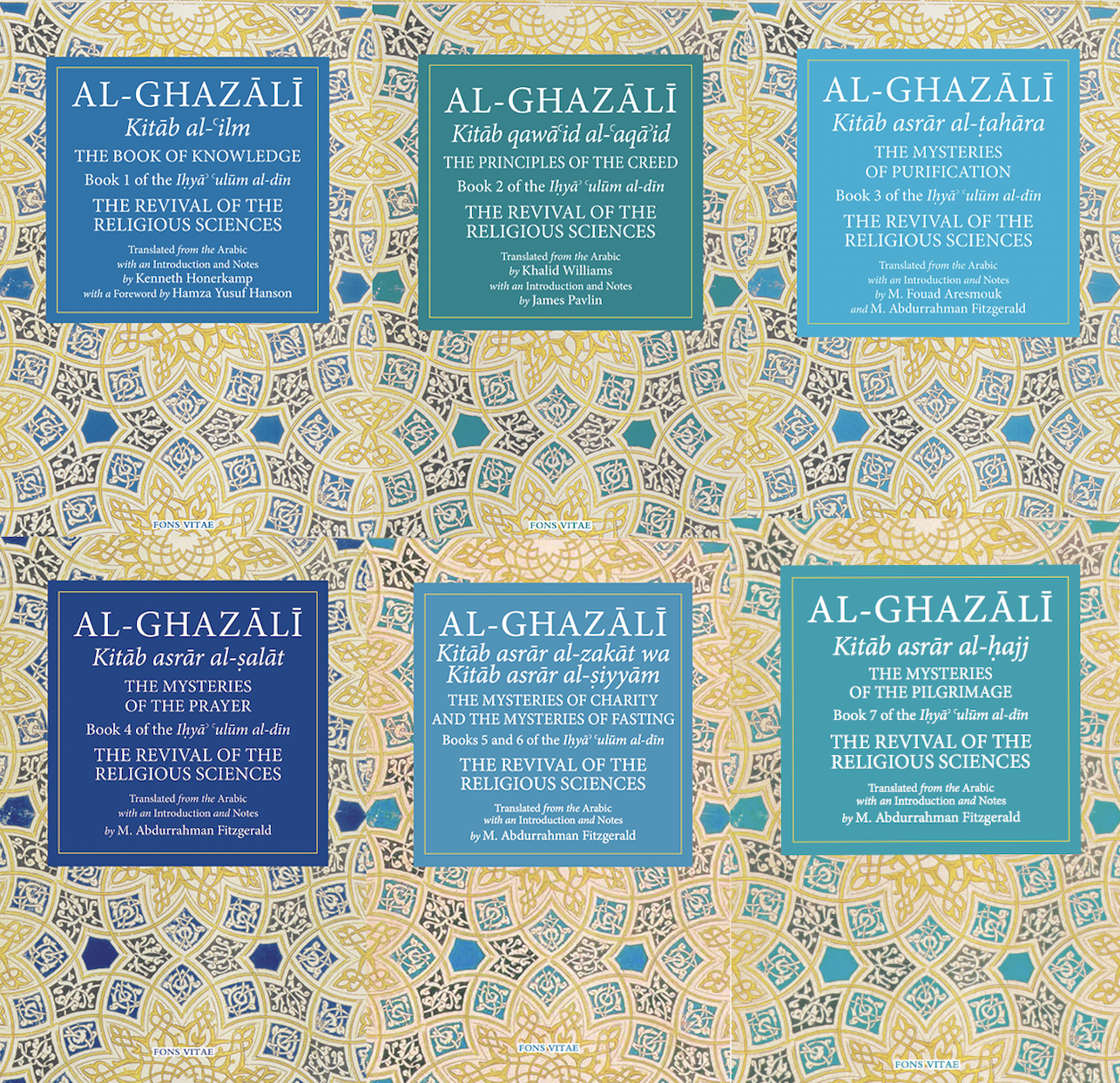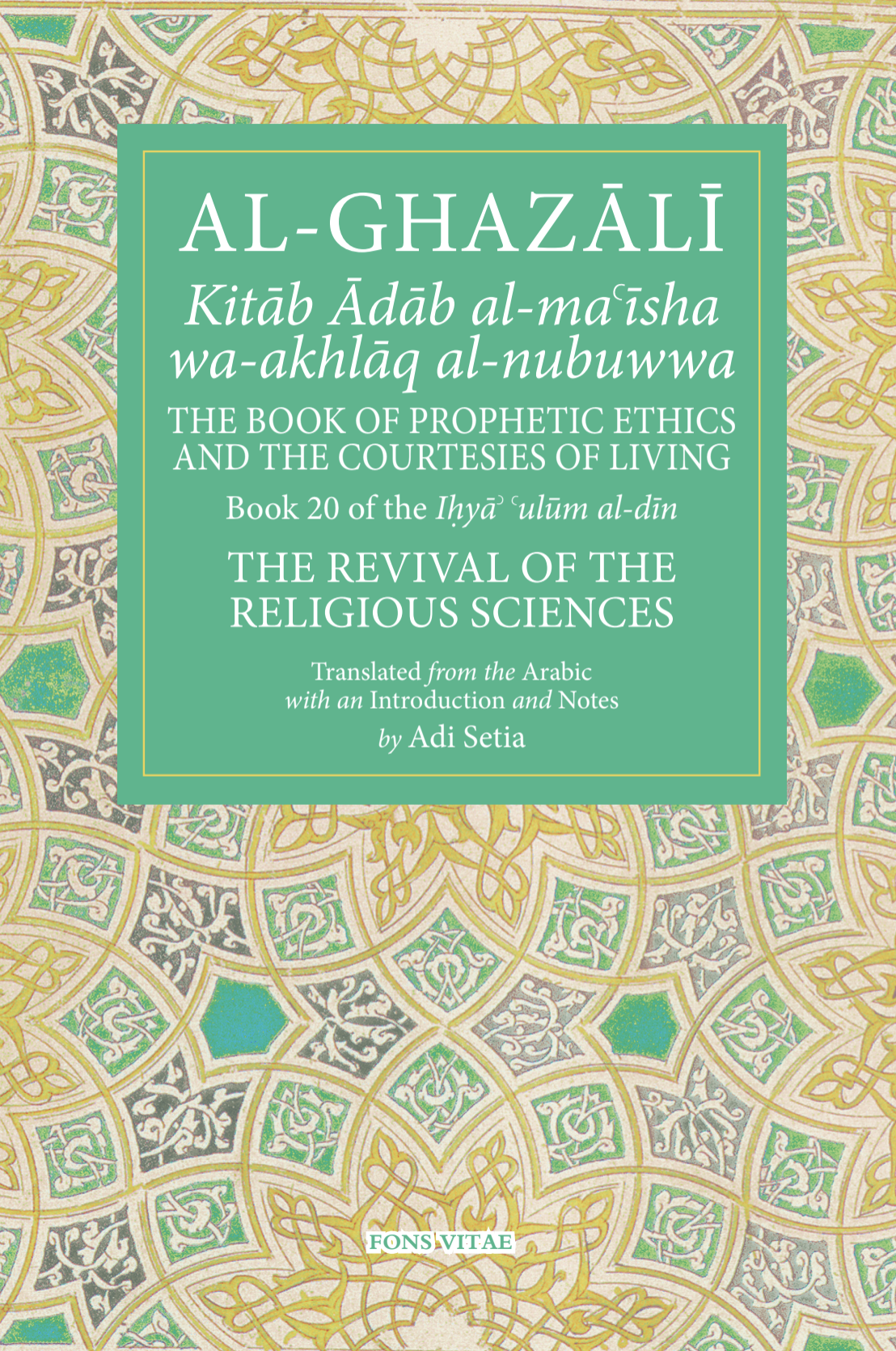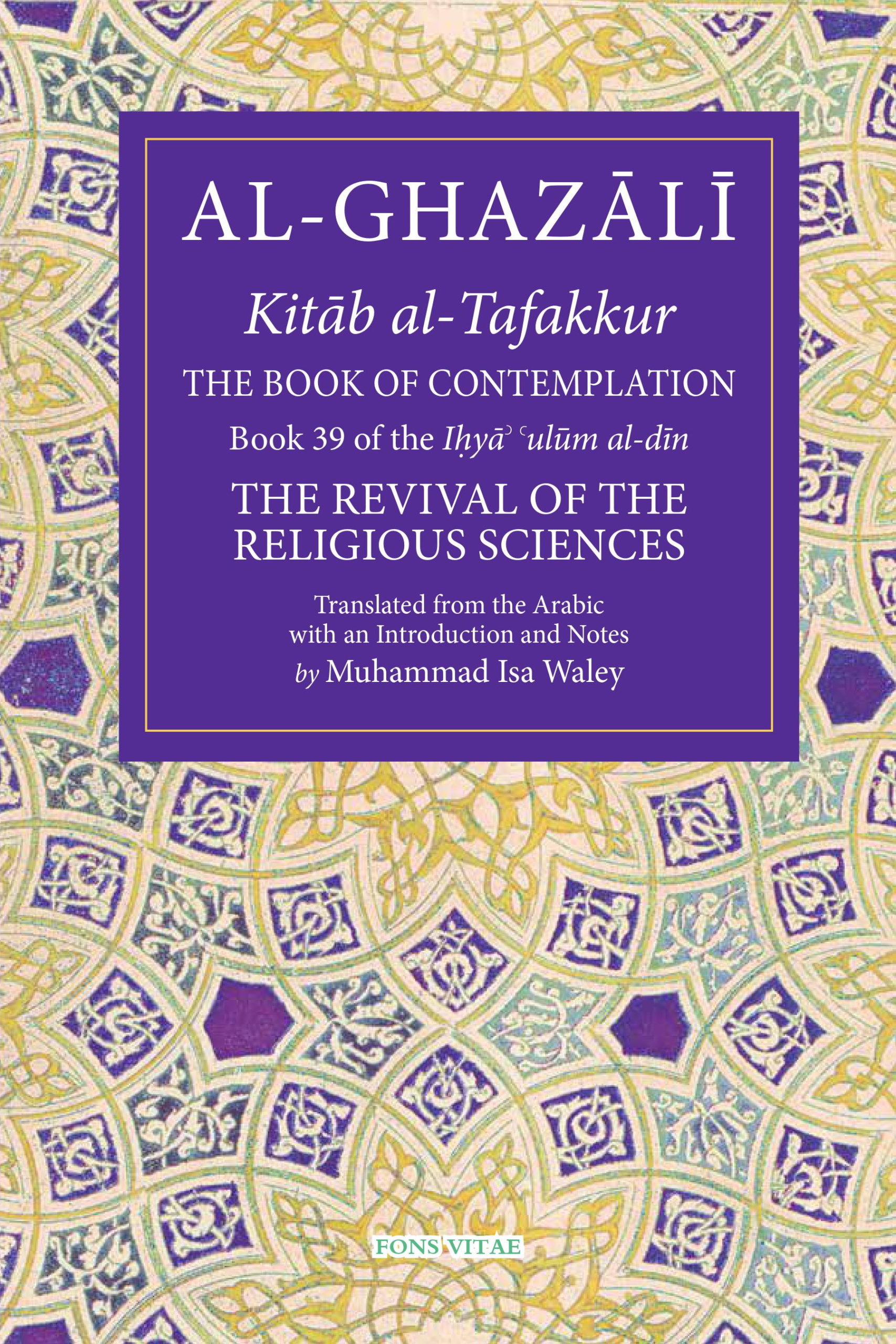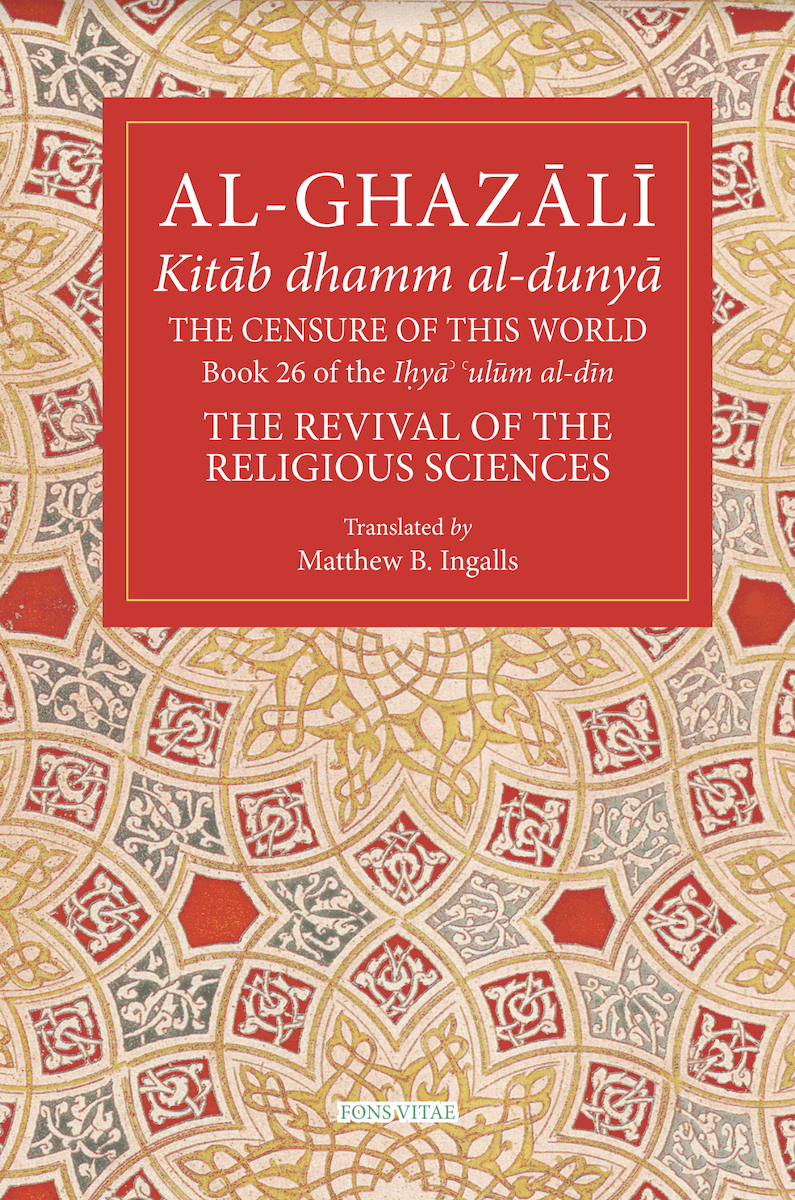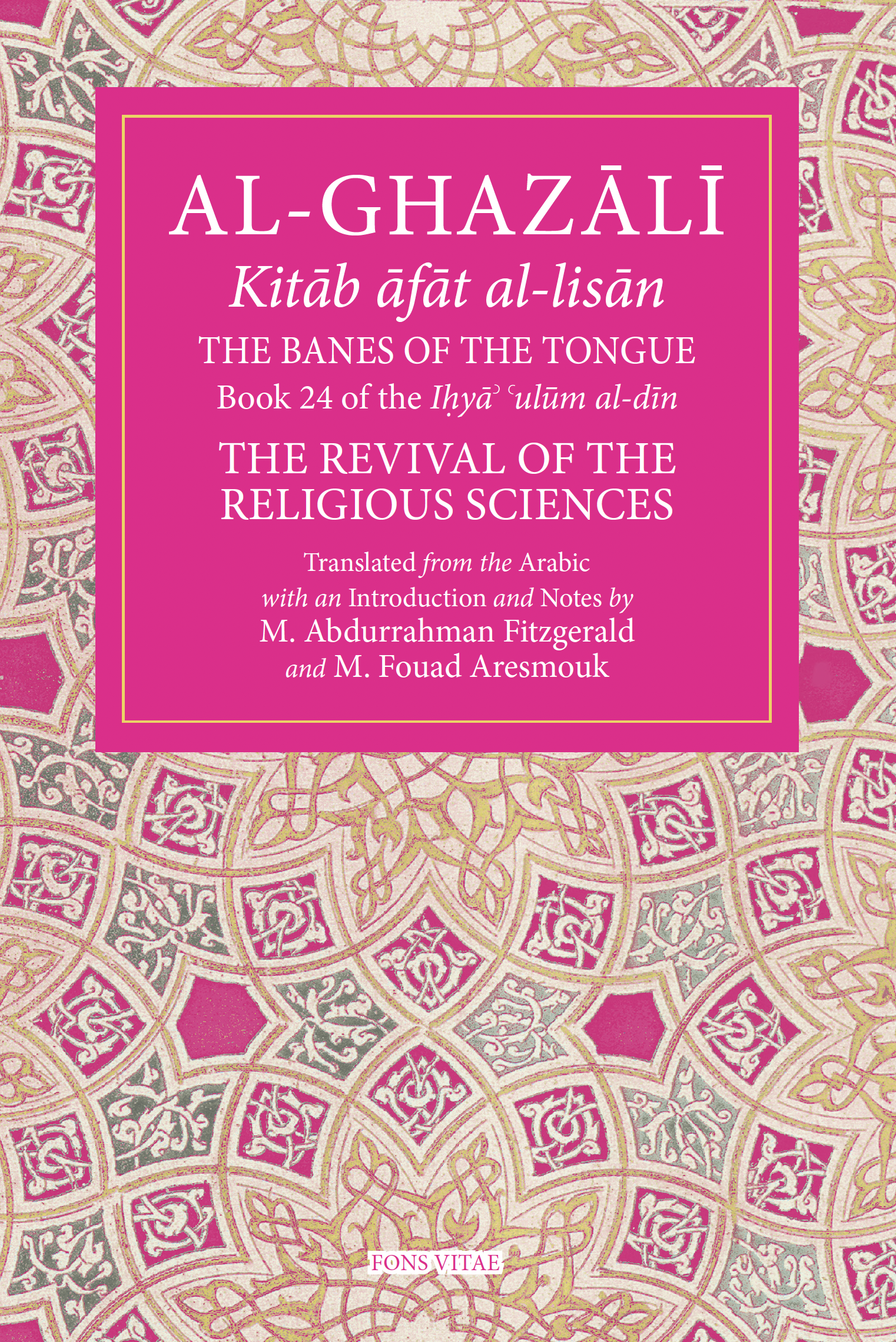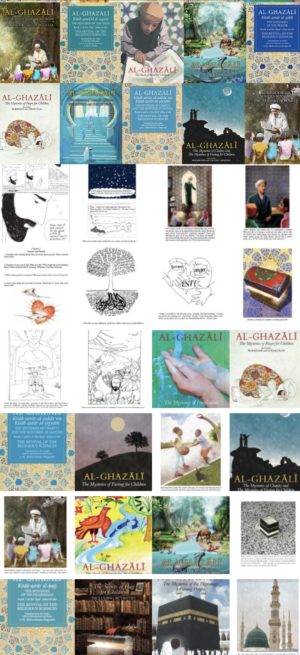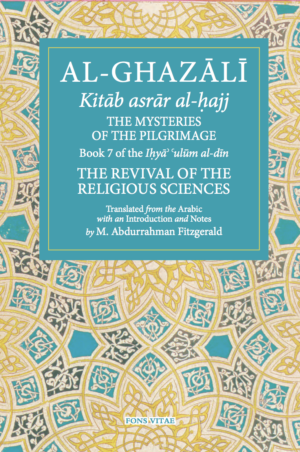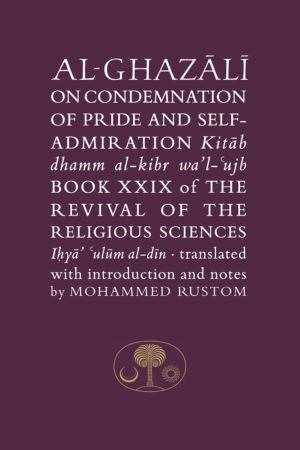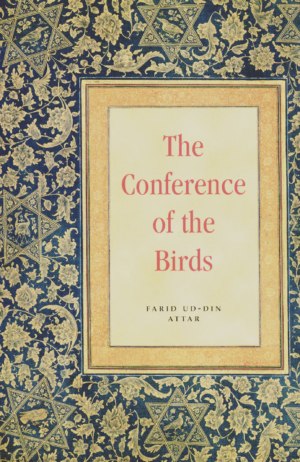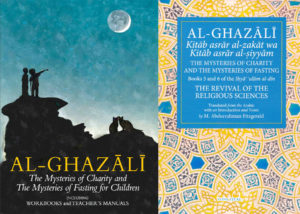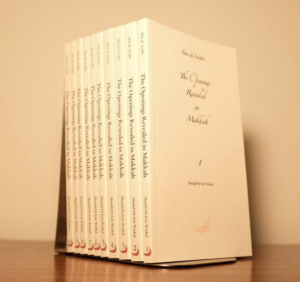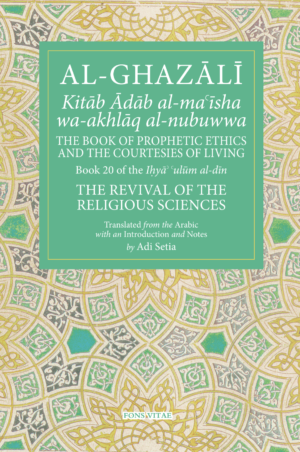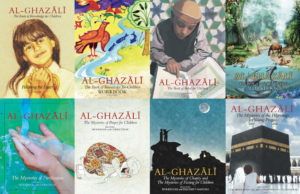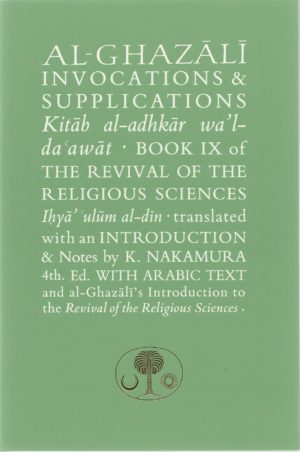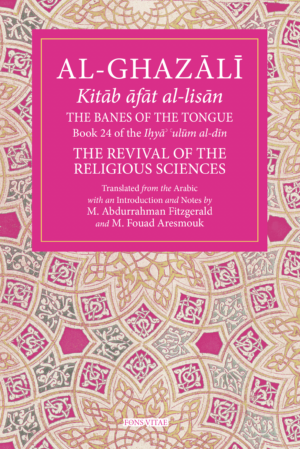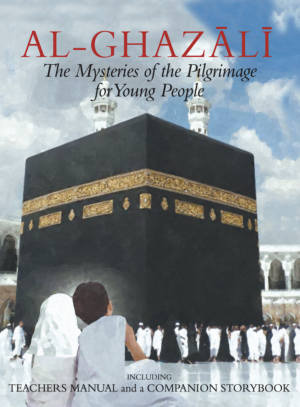- Book 1 – The Book of Knowledge (Kitab al-ilm) is the foundation of the forty books of the Revival of the Religious Sciences (Ihya ulum al-din), Imam al-Ghazali’s magnum opus. In the Book of Knowledge, he defines knowledge, its relation to faith, theology, and jurisprudence. The book deals with the virtue of knowledge from both rational and traditional points of view. It elucidates the types of knowledge and the nature of people’s obligation to seek knowledge. Imam al-Ghazali defines jurisprudence and theology as branches of Islamic knowledge, then outlines those fields that people incorrectly consider to be Islamic disciplines, and distinguishes the praiseworthy from the blameworthy. He describes in detail the perils of disputation and the reasons people engage in debate and dialectics. He also considers the conduct incumbent on the teacher and student, and warns of the perils that can befall those pursuing knowledge. Finally, Imam al-Ghazali discusses the virtues and categories of the intellect and the prophetic traditions related to it.
2. Book 2 – In the Principles of the Creed, (Kitab qawaid al-aqaid) second of the forty books of the Revival of the Religious Sciences(Ihya’ ulum al-din), Abu Hamid al-Ghazali explains the fundamental beliefs of Islam, those that concern faith in God, His revelation, His messengers, and the hereafter. The scope of these beliefs includes the nature of God, Muhammad’s status as a prophet, the virtues of the Companions, the events related to the resurrection and judgment, and the nature of faith itself. This presentation of beliefs goes beyond a list of creedal statements; al-Ghazali cites the scriptural foundations in the Quran and hadith, refers to transmitted reports from the Companions and others from the righteous predecessors, and supports these beliefs with rational arguments.
3. Book 3 –The Mysteries of Purification (Kitāb asrār al-ṭahāra), the third of the forty books of the Revival of the Religious Sciences (Iḥyāʾ ʿulūm al‐dīn), Abū Ḥāmid al-Ghazālī explains the fundamentals of the purification that is necessary in order to perform the five daily prayers. The book begins with an introduction to the general topic of purity. Al-Ghazālī explains the ḥadīth “Purification is half of faith,” and reminds readers that, for the earliest Muslims, inner purification was much more important than outer purification.
4. Book 4 – In the Mysteries of the Prayer and Its Important Elements (Kitāb asrār al-ṣalāt wa-muhimātiha), book 4 of the forty books of the Revival of the Religious Sciences (Iḥyāʾ ʿulūm al-dīn), Abū Ḥāmid al-Ghazālī explains the inner and outer meanings of the prayer, a central practice for Muslims. This is one of five books that deal with the inner dimensions of Islamic worship; books 3, 5, 6, and 7 address purification, zakāt, fasting, and pilgrimage, respectively.
5. & 6. Books 5 & 6 – In the Mysteries of Charity and Its Important Elements (Kitāb asrār al‑zakāt wa-muhimātiha; book 5), and the Mysteries of Fasting and Its Important Elements (Kitāb asrār al-ṣiyyām wa-muhimātiha; book 6), of the forty books of the Revival of the Religious Sciences (Iḥyāʾ ʿulūm al-dīn), Abū Ḥāmid al-Ghazālī explains the inner and outer meanings of charity and fasting, two pillars of worship for Muslims. These are two of the five books that deal with the inner dimensions of Islamic worship; books 3, 4, and 7 address purification, prayer, and pilgrimage, respectively.
In the Mysteries of Charity (Book 5) al-Ghazālī begins with a discussion of the various kinds of zakāt and the conditions under which they become obligatory. He explains the manners related to zakāt and its inward and outward conditions. He then discusses the recipients of zakāt, who qualifies for it and in what circumstances, and the manners related to receiving it. Finally, al-Ghazālī explains charity and its virtues.
In The Mysteries of Fasting (Book 6) al-Ghazālī begins with the outward obligations and sunna elements of fasting, and what is required if the fast is broken. He explains the mysteries of fasting and its inner conditions. Finally, he discusses the voluntary fasts and their order in superogatory worship.
This readable yet comprehensive work covers an array of issues from the essential outward aspects of paying charity, to the inward aspects of the state of the heart during the fast and how to humble oneself completely. As a practical, yet profound book, it is an indispensable guide for Muslims who seek a deeper comprehension of these two fundamental practices for Muslims, and for all those interested in understanding the meaning and role of charity and fasting in Islam.
7. Book 7 – In the Mysteries of the Pilgrimage (Kitāb asrār al-ḥajj), book 7 of the forty books of the Revival of the Religious Sciences (Iḥyāʾ ʿulūm al-dīn), Abū Ḥāmid al-Ghazālī discusses the fundamentals of the pilgrimage, including its pillars, preconditions, and obligations. The book begins with an introduction on the merits of the pilgrimage and its rewards. Al-Ghazālī explains the Qurʾānic statement announcing the pilgrimage: And proclaim to the people the pilgrimage; they will come to you on foot and on every lean camel; they will come from every distant pass—that they may witness benefits for themselves and mention the name of God on known days [22:27–28].
8. Book 16 – In The Proprieties of Retreat (Kitab adab al-‘uzla, Book 16 of The Revival of the Religious Sciences) al-Ghazali addresses the question of whether it is better to engage in social intercourse (al-mukhalata) or remove oneself from society to focus on perfecting one’s relation to God. He takes us through the numerous benefits and dangers of seclusion while laying out the rules to guide the one who chooses this option. He explains that although it depends on many factors, the most important is the person’s intention and purpose for going into seclusion. If it is not done for the sole purpose of drawing near to God, seclusion becomes a harmful path of self-deceit.
9. Book 20 – In the Book of Prophetic Ethics and the Courtesies of Living (Kitab Adab al ma’isha wa-akhlaq al-nubuwwa), book 20 of the forty books which compose the Revival of the Religious Sciences (Ihya’ ‘ulum al-din), Abu hamid al-Ghazali gives a full account of the customs and character of the Messenger of God, Muhammad. It is not a biography of Muhammad (peace and blessing of God be upon him) but a roadmap for those who want to strengthen their faith, increase their knowledge and deepen their understanding of the second part of the testimony of faith, namely the first pillar of Islam.
10. Book 24 – In the Banes of the Tongue, Imām al-Ghazālī divides up the banes, or defects, of the tongue from the least to the most offensive. These include seemingly mundane acts, such as speaking about what is not our concern or pretentious speech, to more serious defects such as using obscene words, cursing, ridiculing others, lying, and gossip. Al-Ghazālī carefully defines each defect and analyzes both its psychological and spiritual dimensions. He offers examples of how these banes manifest themselves in behavior, highlighting their effects on others, while outlining the consequences for the soul. Finally, he offers practical suggestions for eliminating these banes, and stresses the devastating nature of their consequences, both in this life and in the next.
11. Book 26 – The Censure of This World (Kitab Dhamm al-dunya) is book 26 of the forty books of the Revival of the Religious Sciences (Iḥyāʾ ʿulūm al-dīn). It is the first of five books that censure specific perils, the others being The Censure of Greed and the Love of Wealth; The Censure of Fame and Hypocritical Ostentation; The Censure of Pride and Vanity; and The Censure of Deceit. This book covers the broadest topic; namely this world, while the following books delve into specific traits. Al-Ghazālī approaches the topic of this world from the widest possible perspective; that being, the extent of our existence in this world relative to pre-eternity and the eternity of the hereafter. Although our lives here are minute in terms of existence, this time and our choices are crucial to our fate in the next life.
12. Book 39 – In the Book of Contemplation (Kitab al-Tafakkur), Book 39 of the Revival of the Religious Sciences, Ghazali explains the nature and importance of contemplation, or reflection, as an act that enriches the thinking person with increased knowledge of, and wonder at, the Creator and His creation. In Part 1, the author defines and introduces the subject, explaining its importance with reference to the Qur’an, Hadiths, and sayings of wise and pious Muslims. In Part 2, he expounds his own highly original views as to the nature and fruits of contemplation. Part 3 offers detailed guidance as to the most appropriate and beneficial subjects for reflection, some relating to human traits and actions and others to Divine Attributes and Actions. In Part 4, Ghazali explores in detail aspects of God’s creation, which, when viewed with an observant eye and considered with a worshipful heart, are full of wonders and offer inexhaustible scope for reflection – from the artistry of the spider and bee to the unimaginable vastness of the heavens, which themselves are dwarfed by what lies beyond them.
